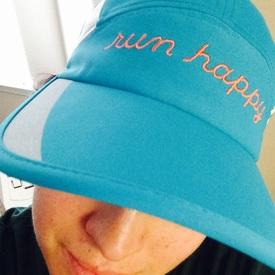Weighing food. Please help

kelseyframe91
Posts: 37 Member
Ok, so I've been reading a lot of posts on here that state we should weigh our food. Why? If I weigh out say a shop bought 300g meal and it's actually 400g then what should I do next. I'm a little confused. I'm on a strict calorie diet so calories are important. OR is there a certain overall weight of food I should be eating every day? Please help. Thanks.
1
Replies
-
(Calories)*1.333333333333333333333333333333330
-
Take the weight divide by what the serving size should weigh and you will know how many servings you ate.
Example:
Protein bar - 170 calories / 45 g
actual weight - 53 g
53 divided by 45 equals 1.178
Example protein bar was 1.178 servings which amounts to 201 calories (actually 200.22)3 -
Or you can just for an entry that you can enter your serving in grams.3
-
shadow2soul wrote: »Take the weight divide by what the serving size should weigh and you will know how many servings you ate.
Example:
Protein bar - 170 calories / 45 g
actual weight - 53 g
53 divided by 45 equals 1.178
Example protein bar was 1.178 servings which amounts to 201 calories (actually 200.22)
Perfect, simple answer. Thank you 1
1 -
No there is not a specific weight limit to how much the food you eat in a day should weigh -- that would be absurd.
People who advocate weighing food do so in the interest of counting calories accurately. So if indeed you buy a package of food that says it is 300 g, but you weigh it and it's 400g, first of all SCORE, 33% more food for free, but also, that's 33% more calories than it says on the box.
For many of us it's less about packaged for than just a matter of knowing that logging "1 chicken breast" is highly imprecise. I buy chicken breasts that weigh anywhere from 5 oz to over a pound each. Logging both of them as "1 breast" or "1 unit" would add up to hundreds of calories of inaccuracy.5 -
There's no overall weight of food you need to eat, but in order to get the most accurate estimation of calories you need to put the correct weight (and use the correct item) in the database for what you're eating. If you're in the UK all packaging will show the nutrition data per 100g (or per 100ml for liquid), so in your example you'd just input 4x100g. If you're in a country that doesn't show per 100g data, use the calculations that the previous posters recommended.
Basically, put in your diary what you're actually eating, not what the manufacturer estimates you're eating.0 -
CurlyCockney wrote: »There's no overall weight of food you need to eat, but in order to get the most accurate estimation of calories you need to put the correct weight (and use the correct item) in the database for what you're eating. If you're in the UK all packaging will show the nutrition data per 100g (or per 100ml for liquid), so in your example you'd just input 4x100g. If you're in a country that doesn't show per 100g data, use the calculations that the previous posters recommended.
Basically, put in your diary what you're actually eating, not what the manufacturer estimates you're eating.
I'm jealous. Wish our foods were all labeled per 100 grams. The most common serving I see is 28 grams for some reason.
1 -
CurlyCockney wrote: »There's no overall weight of food you need to eat, but in order to get the most accurate estimation of calories you need to put the correct weight (and use the correct item) in the database for what you're eating. If you're in the UK all packaging will show the nutrition data per 100g (or per 100ml for liquid), so in your example you'd just input 4x100g. If you're in a country that doesn't show per 100g data, use the calculations that the previous posters recommended.
Basically, put in your diary what you're actually eating, not what the manufacturer estimates you're eating.
I'm jealous. Wish our foods were all labeled per 100 grams. The most common serving I see is 28 grams for some reason.
We have serving sizes too, but the label still shows per 100g - for which I'm truly thankful, as maths isn't my strong suit ;-)
0 -
I'm jealous. Wish our foods were all labeled per 100 grams. The most common serving I see is 28 grams for some reason.
28 grams is approximately one ounce.1 -
At first I thought weighing everything was excessive.....then I came to realise the point about accuracy and the importance of it in monitoring relatively small movements in my weight loss over short periods of time.....so now I weigh just about everything as much as I can. I get a bit unstuck on things like measuring a teaspoon of honey or coconut oil.....so if anyone can suggest a method for these items that would be good0
-
At first I thought weighing everything was excessive.....then I came to realise the point about accuracy and the importance of it in monitoring relatively small movements in my weight loss over short periods of time.....so now I weigh just about everything as much as I can. I get a bit unstuck on things like measuring a teaspoon of honey or coconut oil.....so if anyone can suggest a method for these items that would be good
Put the jar/bottle on the scale and zero it, then remove what you want to eat and weigh the jar/bottle again. The negative number is how much you've used (e.g if it says -15g you've had 15g).7 -
I weigh foods that would be too imprecise to measure or eyeball like the other people said. I don't really worry about protein powder/bars/etc0
-
I weigh almost everything but make it a point to ALWAYS weigh calorie dense food like red meat, cheeses, breads or nuts. The calorie difference between 18 and 28g of lettuce is about 3 calories. The calorie difference between 18 and 28 g of almonds is over 100!3
-
Thanks everyone. Makes more sense to me now
 1
1 -
If the entry is for 300 grams and you eat 400 grams, then do the math: 400/300 = 1.33 so you have 1.33 servings. Log as 1.33 servings.
If you are losing weight without weighing your food, then you are estimating well enough to still have a deficit. If you're not losing weight, as in its been 4-6 weeks and you're not losing weight, then you are eating more than you think. Estimating is bound to have errors. At that point, improve your accuracy.kelseyframe91 wrote: »Ok, so I've been reading a lot of posts on here that state we should weigh our food. Why? If I weigh out say a shop bought 300g meal and it's actually 400g then what should I do next. I'm a little confused. I'm on a strict calorie diet so calories are important. OR is there a certain overall weight of food I should be eating every day? Please help. Thanks.
1 -
For many of us it's less about packaged for than just a matter of knowing that logging "1 chicken breast" is highly imprecise. I buy chicken breasts that weigh anywhere from 5 oz to over a pound each. Logging both of them as "1 breast" or "1 unit" would add up to hundreds of calories of inaccuracy.
I agree. I don't typically weigh pre-packaged food, and it hasn't affected my weight loss. I will, however, weigh one or two items the first time I purchase it to see if it is close to the weight listed on the box, and so far almost everything has been about bang on.
I do weigh all my fruit, vegetables, meat, cheese, bread, etc. and use measuring cups and spoons for liquids. Weighing my food has made a huge difference in my tracking, and once you start doing it it's actually super easy.0 -
becca1380461 wrote: »I weigh almost everything but make it a point to ALWAYS weigh calorie dense food like red meat, cheeses, breads or nuts. The calorie difference between 18 and 28g of lettuce is about 3 calories. The calorie difference between 18 and 28 g of almonds is over 100!
This has made a huge difference for me. I used to grab a "handful" of nuts as a snack. God only knows how many calories that was! I used to think - oh, that's about 100 calories, but really, I had no idea. It was probably more like 100 grams. Now, every time, I get a little bowl and measure out 17-18 grams of almonds to get ~ 100 calories. It's shocking to me, still, how small the amount of nuts that is.0 -
becca1380461 wrote: »I weigh almost everything but make it a point to ALWAYS weigh calorie dense food like red meat, cheeses, breads or nuts. The calorie difference between 18 and 28g of lettuce is about 3 calories. The calorie difference between 18 and 28 g of almonds is over 100!
This has made a huge difference for me. I used to grab a "handful" of nuts as a snack. God only knows how many calories that was! I used to think - oh, that's about 100 calories, but really, I had no idea. It was probably more like 100 grams. Now, every time, I get a little bowl and measure out 17-18 grams of almonds to get ~ 100 calories. It's shocking to me, still, how small the amount of nuts that is.
Nuts are the most depressing thing about weighing!
I lost the first 20 lbs or so not weighing anything. I finally got a scale and now only weigh nonpackaged food and I have found no issues losing weight not measuring packaged foods when I actual keep within my calories. I do not eat a lot of prepackaged foods though.0 -
LessthanKris wrote: »becca1380461 wrote: »I weigh almost everything but make it a point to ALWAYS weigh calorie dense food like red meat, cheeses, breads or nuts. The calorie difference between 18 and 28g of lettuce is about 3 calories. The calorie difference between 18 and 28 g of almonds is over 100!
This has made a huge difference for me. I used to grab a "handful" of nuts as a snack. God only knows how many calories that was! I used to think - oh, that's about 100 calories, but really, I had no idea. It was probably more like 100 grams. Now, every time, I get a little bowl and measure out 17-18 grams of almonds to get ~ 100 calories. It's shocking to me, still, how small the amount of nuts that is.
Nuts are the most depressing thing about weighing!
You can say that again. Limiting the salted cashews just about breaks my heart.
1
This discussion has been closed.
Categories
- All Categories
- 1.4M Health, Wellness and Goals
- 398.2K Introduce Yourself
- 44.7K Getting Started
- 261K Health and Weight Loss
- 176.4K Food and Nutrition
- 47.7K Recipes
- 233K Fitness and Exercise
- 462 Sleep, Mindfulness and Overall Wellness
- 6.5K Goal: Maintaining Weight
- 8.7K Goal: Gaining Weight and Body Building
- 153.5K Motivation and Support
- 8.4K Challenges
- 1.4K Debate Club
- 96.5K Chit-Chat
- 2.6K Fun and Games
- 4.8K MyFitnessPal Information
- 12 News and Announcements
- 21 MyFitnessPal Academy
- 1.5K Feature Suggestions and Ideas
- 3.2K MyFitnessPal Tech Support Questions














